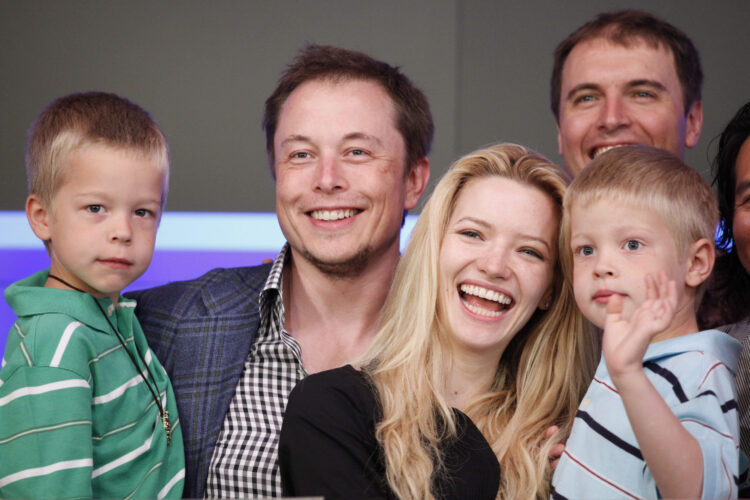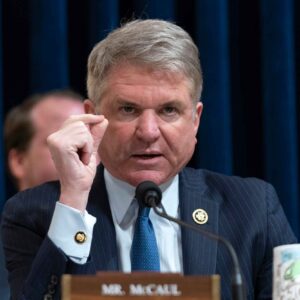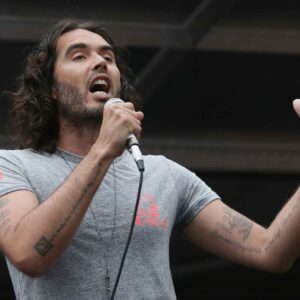Serial entrepreneur and tech mogul Elon Musk was motivated in part to purchase social media platform Twitter because of the fate of his son Xavier, who now goes by “Vivian Jenna.” Musk blamed his son’s gender transition and conversion to “communism” on Crossroads, an elite LA private school.
Learn the benefits of becoming a Valuetainment Member and subscribe today!
This story derives from a Wall Street Journal article which adapted an excerpt from famed biographer Walter Isaacson’s forthcoming biography Elon Musk.
In an exclusive excerpt from the new biography “Elon Musk” by Walter Isaacson, The Wall Street Journal offers a behind-the-scenes look at the controversial mogul's decision to buy Twitter https://t.co/KbcL8dmUr4
— The Wall Street Journal (@WSJ) August 31, 2023
Musk had long desired to create an all-in-one platform called “X” where people could buy and sell, find new music, videos, and stories, and socially network. He had wanted to do this with PayPal when he agreed to merge it with his company X in 2000, but failed to convince Peter Thiel. So purchasing and taking over something like Twitter had been at the back of his mind for two decades, and when he began buying Twitter shares in April 2022 it dawned on him that he could try again.
But at that point he was only buying shares, which he decided to do simply because of an itch to take on another project (and because he had $10 billion in cash after getting rid of some expired stock options). What pushed him to fully purchase the platform was another driver, perhaps a deeper, subconscious one: his concern about the “woke mind virus” as he calls it, whose “anti-science, anti-merit, and anti-human” characteristics he felt was going to prevent humanity from becoming a “multiplanetary civilization.”
Musk reached this harsh stance on wokeness because of what was happening to his then-16-year-old son Xavier, one of his two children (a twin) with ex-wife Justine Wilson, a fantasy author from Canada. Musk found out that his son wanted to change his gender. “Hey, I’m transgender, and my name is now Jenna. Don’t tell my dad,” he texted his aunt. At first, Musk was not angry, having previously tweeted his opinion, “I absolutely support trans, but all these pronouns are an esthetic nightmare.”
Meet Elon Musk's transgender daughter Vivian Jenna Wilson – who he describes as a 'communist who thinks anyone rich is evil' https://t.co/K6PfKR3Gmy pic.twitter.com/U1sn6xtBC7
— Daily Mail US (@DailyMail) September 1, 2023
But when his son announced he was a Marxist and wanted nothing to do with his father, Elon felt pain that he could only compare to the death of his infant child Nevada. “She went beyond socialism to being a full communist and thinking that anyone rich is evil,” he said.
Musk tried repeatedly to rescue their relationship. But it was to no avail: “I’ve made many overtures, but she doesn’t want to spend time with me.” Musk began to feel that his son’s changes were not natural but ideological. He began to blame Crossroads, an elite private school in Los Angeles, for indoctrinating his son.
Elon Musk's 18-year-old daughter has filed to legally change her name to confirm to her gender identity.
The official reason given: "Gender identity and the fact that I no longer live with or wish to be related to my biological father in any way, shape or form." pic.twitter.com/t04P9m8fEI
— KnowNothing (@KnowNothingTV) June 20, 2022
It was then that Musk began seeing Twitter as another Crossroads — perhaps the bigger and more powerful Crossroads that influenced many schools by influencing the general culture. By suppressing anti-establishment and right-of-center opinions, Elon apparently felt Twitter had given an exclusive platform to radical-left ideologues that reached his loved ones.
Isaacson writes that Elon’s favorite virtue is being “hardcore,” that Discomfort is “a good thing,” “a weapon against the scourge of complacency.” Soon-to-be-fired holdovers like Chief Marketing and People Officer Leslie Berland stressed that Twitter was “very high-empathy, very caring about inclusion and diversity” and a work culture that insisted “everyone needs to feel safe.” Twitter had introduced a permanent remote work option, a monthly “mental health” day, and enshrined “psychological safety” as a core value of the organization. Musk reportedly “recoiled” at the word, seeing it as “the enemy of urgency, progress, orbital velocity.”
When Musk was days away from closing his deal to buy Twitter in October 2022, he showed up to the Twitter headquarters to survey the office he was about to acquire. He found that the company held very different values from his own not only externally but internally as well. Just as Elon had contempt for the friendly, jokey name “PayPal,” so he did for “Twitter” and its bird logo. “All these damn birds have to go,” he said. The bathrooms had “Gender diversity is welcome here” written on their signs. In a kind of victory lap to humiliate the vanquished, Elon waved around a t-shirt that said “Stay Woke” which he found in filing cabinet among Twitter merchandise, exposing what he felt were the values of the company’s previous culture.
Musk always wanted to start a company called X and turn it into a trend-setting leviathan, a cultural monopoly. But twenty years had passed without him getting it done. The man that eventually was to create X was not a starry-eyed young tech entrepreneur but an angry father who felt his child was being turned against him. Now it was personal.


















Add comment